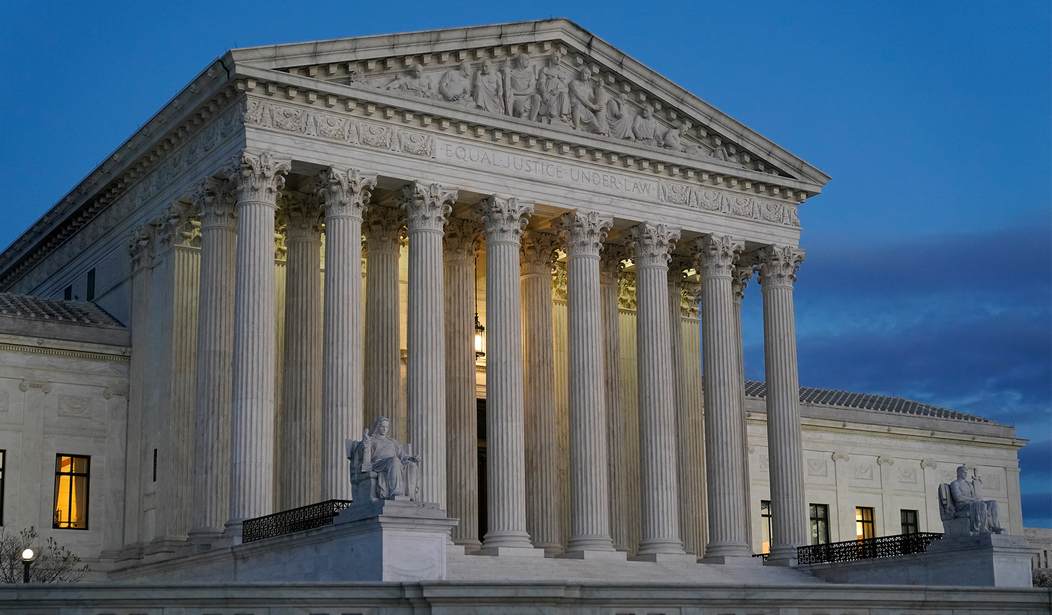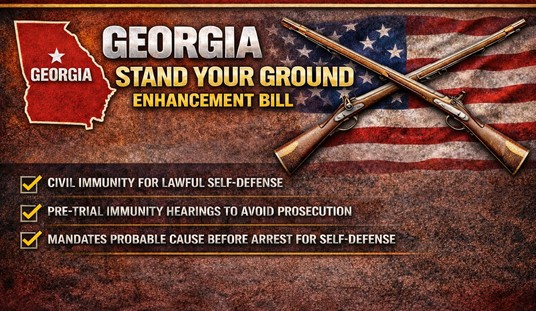There’s a lot to celebrate in the Third Circuit’s decision in Range v. Garland, but many progressives aren’t exactly thrilled about the court’s ruling that a non-violent misdemeanor conviction for food stamp fraud isn’t enough to justify a lifetime prohibition on gun ownership. As Slate’s Mark Joseph Stern recently opined, the 11-4 decision included support from both conservative and liberal justices, leading him and others to worry that “we may be entering a new era of Second Amendment litigation, one in which left-leaning judges reluctantly embrace gun rights as a tool of progressive constitutionalism.”
Stern notes that public defenders in particular have been using the Bruen decision to aid their clients charged with violating a variety of gun laws, while putting his own progressive (and pro-gun control) spin on the not-so-shocking idea that criminal defense attorneys have a vested interest in promoting a robust view of the right to keep and bear arms.
Because so many high-profile gun cases are manufactured by conservative activists—including this one—it’s easy to forget who’s really on the front lines of the Second Amendment revolution: criminal defense attorneys representing indigent clients charged with firearm offenses. (It’s telling that one Biden appointee who joined the majority in Range, Arianna Freeman, spent her entire legal career as a federal public defender.) Public defenders have a Sixth Amendment obligation to provide their clients with a zealous defense, which increasingly includes constitutional challenges to gun restrictions.
That’s why New York City’s public defenders filed a brief in Bruen urging the Supreme Court to strike down nearly all limitations on public carry. And it’s why the 3rd Circuit’s top public defenders—Freeman’s former colleagues—filed a similar brief in Range attacking the federal felon-in-possession ban. The Supreme Court’s Second Amendment decisions all envision “law-abiding, responsible citizens” who seek to protect themselves and their families from violence. But in the real world, the people who have the most to gain from these rulings are criminal defendants facing down years or decades in prison. Recent decisions establishing a right to scratch out a gun’s serial number and purchase a firearm while under indictment or restraining order all arose out of criminal prosecutions, not NRA-backed test cases.
Like a growing number of public defenders, liberal judges like Freeman, Ambro, Greenaway, and Montgomery-Reeves may think that the Second Amendment can be repurposed as a weapon against over-policing and mass incarceration. If upheld by the Supreme Court, Range will certainly be a boon to the criminal defense bar, as well as a source of immense confusion for prosecutors. The majority’s standard is extraordinarily vague: It acknowledges that some people may be disarmed for committing a felony, but a person “like Range” could not. How can judges tell when someone falls on Range’s side of the line? The majority didn’t say. In 2019, then-Judge Amy Coney Barrett took a stab at a clearer standard, asserting that only “dangerous” and “violent felons” may be disarmed. But which crimes count as “violent”? Is selling or using cocaine “violent”? How about possessing child pornography? Drunk driving? Burglary? Harassment? In a 2015 decision, the Supreme Court found it impossible to give the term “violent felony” a “principled and objective” standard. Why should courts have any more luck today?
This uncertainty would force prosecutors to think twice before bringing felon-in-possession charges, asking first whether they could persuade a court that the defendant is sufficiently “dangerous” or “violent” or “non-law-abiding” to justify disarmament. And from a criminal justice reform perspective, that’s not necessarily a bad thing. Plenty of left-leaning commentators have argued that the felon-in-possession ban is disproportionately enforced against people of color, contributing to mass incarceration and persecution of minority communities. For many progressives, these problems raise concerns about equal protection, unlawful policing, and unconstitutional sentences. But this Supreme Court doesn’t see them that way; it cares far more about gun rights than traditional civil rights, such as basic civic equality of Black Americans. So progressive judges may instead seek to use the Second Amendment as a stand-in for constitutional principles that SCOTUS has abandoned.
What’s the problem? Well, for Stern and his fellow anti-gunners, the issue is the “legitimizing” of the Supreme Court’s decision in Bruen, which they would prefer be seen and treated as an temporary aberration that can be ignored or dismissed at will.
Great @mjs_DC piece that highlights the tension for progressives/progressive judges facing a broad SCOTUS view of the Second Amendment. I fully share the worries abt discriminatory enforcement AND the concurrent concern about legitimating Bruen.https://t.co/G5tNeAGZFn
— Jake Charles (@JacobDCharles) June 7, 2023
Jacob Charles is a law professor at Pepperdine University and an affiliated scholar at the Duke University Center for Firearms Law, which is supposedly “dedicated to supporting reliable and balanced scholarship” on Second Amendment issues. It’s hard to take that claim seriously when their “scholars” view the Bruen decision as illegitimate, but then the Center has already become sort of a running joke among 2A scholars for its regular critiques of almost every court decision that treats the right to keep and bear arms as real and of the same importance as freedom of speech or the right to be secure in our persons or property.
While Charles and other anti-gun academics take a dim view of these court decisions and their embrace by public defenders, the fact remains that its often these attorneys who have a front row view of the abuses of gun control regimes like those in New York, Illinois, and California. Public defenders in New York wrote a brief in Bruen in support of overturning New York’s “may issue” regime, and the chief public defender in Cook County has also spoken out in favor of “ending the way we criminalize gun possession“, arguing that black gun owners are disproportionately harmed by the enforcement of possessory gun offenses, including FOID card mandates and other licensing laws.
The gun prohibitionists would much rather the Second Amendment apply to no one than have it apply to all “the people”, and the more public defenders cite Bruen (and cases like Range) in their clients’ defense the harder it is for the gun control lobby to gain traction with their campaign to delegitimize the Court’s 2A jurisprudence and to perpetrate their fiction that the right of the people to keep and bear arms isn’t a right at all. That’s why they’re not-so-quietly freaking out about the Third Circuit’s decision, and why their howls of protest are likely to grow louder as more courts (and court-appointed attorneys) treat the Second Amendment with the fundamental importance it deserves.









